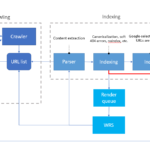The Essential Role of Fiber in a Healthy Diet: Why You Need It
Fiber is an often overlooked but crucial component of a balanced diet. Whether your goal is weight management, improved digestion, or better overall health, adding fiber to your daily meals can provide numerous benefits. Let’s dive into the key advantages of incorporating fiber into your diet:
1. Helps Maintain a Healthy Body Weight
Fiber-rich foods are generally lower in calories and more filling. Since they take longer to chew and digest, they help curb overeating by making you feel satisfied for longer. Additionally, fiber helps regulate blood sugar levels, reducing sudden hunger pangs caused by blood sugar fluctuations. This steady energy supply makes it easier to control your portion sizes and maintain a healthy weight.
2. Regulates Blood Sugar Levels
For those managing diabetes or trying to maintain stable energy levels, fiber is a game changer. It slows down the absorption of sugar into the bloodstream, preventing sharp spikes and crashes in blood glucose levels. This not only helps regulate insulin sensitivity but also improves long-term blood sugar control.
3. Supports Digestive Health
One of the most well-known benefits of fiber is its role in promoting healthy digestion. Fiber adds bulk to your stool, making it easier to pass and preventing constipation. It also feeds the healthy bacteria in your gut, improving overall digestive function and promoting a healthy gut microbiome, which is linked to better immunity and well-being.
4. Boosts Metabolism
A diet rich in fiber can indirectly enhance your metabolism. By increasing the thermic effect of food (the amount of energy your body uses to digest and process what you eat), fiber contributes to a higher calorie burn. This makes it an essential element in any weight loss or metabolic improvement plan.
5. Lowers Cholesterol Levels
Soluble fiber, found in foods like oats, beans, and fruits, binds to cholesterol in your digestive system and helps remove it from the body. This reduces “bad” LDL cholesterol levels, lowering the risk of heart disease and supporting overall cardiovascular health.
6. Keeps You Feeling Full Longer
Fiber slows the digestive process, making you feel full for a more extended period after meals. This extended feeling of fullness helps control hunger, reducing the need for unnecessary snacking and preventing overeating, which is beneficial for maintaining steady energy levels and supporting long-term weight management goals.
Conclusion: Make Fiber Your Diet’s Best Friend
Adding fiber to your diet isn’t just about improving digestion or controlling your weight; it’s about nurturing your body’s overall health. From regulating blood sugar levels to supporting heart health, fiber plays a vital role in keeping your body in optimal condition. Start by including more fiber-rich foods like fruits, vegetables, whole grains, and legumes in your daily diet to experience these health benefits firsthand.









